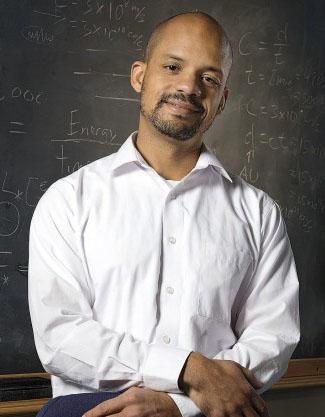PROVIDENCE, R.I. [Brown University] — John A. Johnson, Harvard astrophysicist and a leader in the search for Earth-like planets outside our solar system, will kick off a new science, engineering, and mathematics lecture series to be held this year at Brown. The theme of the Presidential Colloquium Series, sponsored by the Office of the President, is “Thinking Out Loud: Deciphering Mysteries of Our World and Beyond.”
“Brown has a history of asking big questions,” said Brown President Christina Paxson, “and these talks will bring some great minds to campus to address the kinds of big questions that most of us have wondered about.”
The series will feature five speakers over the course of the school year addressing big-picture topics from the nature of human consciousness to how we might finally be able to beat cancer. All talks are free, open to the public, and geared to appeal to broad audiences. Registration information and details about the series are available at brown.edu/thinking-out-loud.
“This series is about evoking the sense of wonder inherent in science, engineering, and math research,” said Chris Rose, visiting professor of engineering and one of the organizers of the series. “Our speakers are leading researchers in their fields, as well as great communicators who excel at presenting their ideas and work to broad audiences.”
Johnson’s opening talk, to be held Monday, Oct. 6, at 5:30 p.m. in the Metcalf Research Building, tackles a question that humanity has wondered about for centuries: Are we alone in the universe?
The existence of highly intelligent life on other planets within our own solar system has been all but ruled out. But could we discover life in solar systems elsewhere in the vastness of the Milky Way? The first step to answering that question is to search for suitable homes for that life — rocky planets orbiting their host stars in the not-too-hot, not-too-cold sweet spot that astronomers call the “habitable zone.”
Using NASA’s Kepler orbital telescope, researchers have found hundreds of so-called exoplanets orbiting distant stars. Johnson and his research group are on the cutting edge of this research. In a talk titled, “Searching for Life Basking in the Warmth of Other Suns,” Johnson will discuss his team’s efforts to characterize these planets in the hopes of finding an Earth-sized world in a habitable zone that might be suitable for life.
“Professor John Johnson is the perfect person to kick off the Presidential Colloquium Series,” said Lawrence Larson, dean of Brown’s School of Engineering, which co-sponsors the series. “The topic of life on other worlds is one of the biggest questions there is, and we are much closer than we have ever been to answering it.”
Thinking Out Loud:
Deciphering Mysteries of Our World and Beyond
- “Searching For Life Basking in the Warmth of Other Suns”
John A. Johnson, professor of astronomy, Harvard University
Monday, October 6, 5:30 p.m.
Friedman Auditorium, Metcalf Research Building
- “The Dynamics of the Unconscious Brain Under General Anesthesia”
Emery N. Brown, the Edward Hood Taplin Professor of Medical Engineering and Computational Neuroscience, M.I.T.
Thursday, November 13
- “The Caged Drugs Sing: Killing Cancer With Nano”
Paula T. Hammond, the David H. Koch Professor of Chemical Engineering, M.I.T.
February 2015
- “What Guards Reality Against Oblivion? SUSY Might”
S. James Gates, Jr., Distinguished University Professor, University Regents Professor and John H. Toll Professor of Physics, University of Maryland
March 2015
- “Optimization: The Roots of Contemporary Mathematics”
Richard A. Tapia, University Professor and Maxfield-Oshman Professor in Engineering, Rice University
May 2015

